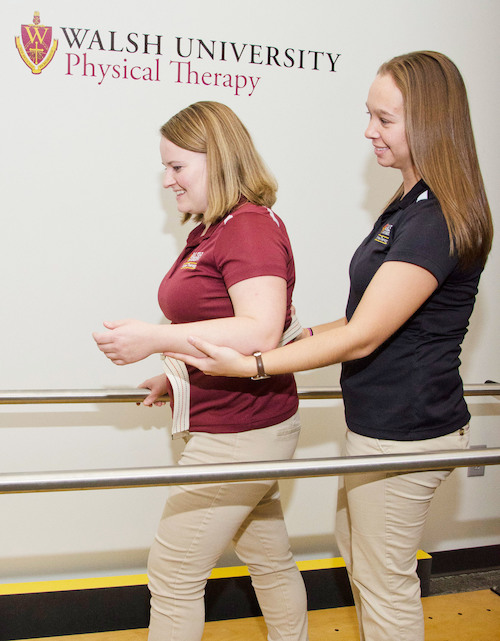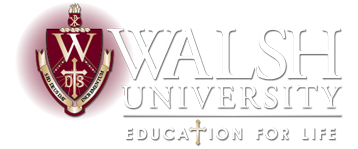
Program Vision
Our vision is to produce physical therapists who are critical thinkers and life-long learners, who demonstrate excellence in professional practice, are consumers or contributors to evidence based practice, and are leaders in service to others.
Program Mission
The mission of the Physical Therapy Program is to provide an exceptional educational environment to foster the growth and development of professional knowledge, skills and behaviors consistent with the profession of physical therapy, in accordance with reason guided by the example and teachings of Jesus Christ.
Program Philosophy
The philosophy of Walsh University’s Physical Therapy Program supports our belief that to be a steward within today’s healthcare environment, our faculty and students will demonstrate superior professional behaviors required of reflective and collaborative healthcare practitioners. Our program will provide a cultivating environment to foster development of leadership, service, and advocacy through mentorship and altruistic endeavors. The goal of these guiding principles is to promote the management of the movement system across the lifespan, within community based clinical and non-clinical settings. This will be accomplished by utilizing a variety of partnerships or experiences to provide an integrative and transformational learning environment using human movement as the teacher.
Program Goals
Building on a solid grounding in the liberal arts, the graduate level program focuses on the development of students emphasizing those values and characteristics that will enable the graduate to function as a competent provider of physical therapy services.
Based on the missions of Walsh University and the Physical Therapy Program, the following five goals were developed:
Goal 1
- Prepare competent doctors of physical therapy for evidence based and collaborative clinical practice.
Goal 2
- Develop consumers and creators of scholarship by promoting and supporting academic excellence through engagement in basic science, clinical, and translational research for dissemination of new knowledge.
Goal 3
- Engage in physical therapy service partnerships that provide health care education, service/outreach, research activities, and clinical care to the general population.
Goal 4
- Promote ideal ethical and professional behaviors consistent with the physical therapy profession.
Goal 5
- Demonstrate excellence in innovative instructional strategies and/or communication methods.
To achieve these goals the students must demonstrate the general knowledge, skill, and mindfulness of a competent physical therapist who exhibits the Judeo-Christian values of Walsh University.
Program Overview
The Physical Therapy Program is committed to providing an educational program that both challenges and enhances a student's ability to learn through a student-centered, values-based teaching environment that focuses on clinical-decision making, evidence-based practice, and on service to the wider community. We have organized the curriculum around impairments found in the major body systems. We utilize a variety of active learning strategies and case-study teaching methods to enhance student learning and critical thinking.
The Walsh University Physical Therapy curriculum, an intensive three-year (8-semester) program, including summers, leads to a Doctor of Physical Therapy degree. Coursework builds upon a foundation of basic sciences and problem-solving skills. Students gain knowledge and develop skills in teaching and scientific inquiry as well as physical therapy patient diagnosis and intervention. Students must perform original research and present their work prior to graduation. Students take a comprehensive examination at the end of the third year and must pass that examination to graduate. Upon successful completion of the academic and clinical components of the curriculum, graduates meet the educational requirements to take the licensure examination required in all 50 states, the District of Columbia, and in the U.S. territories of Puerto Rico and Guam to practice as a physical therapist.
